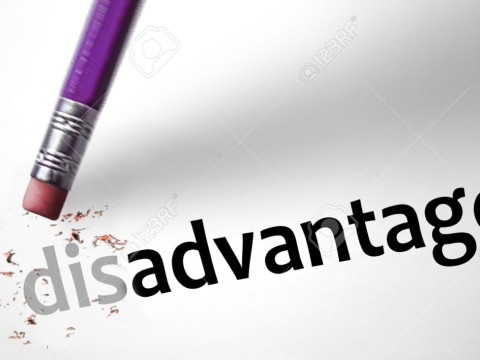disadvantage
🇬🇧/ˌdɪsədˈvɑːntɪdʒ/ 🇺🇸/ˌdɪsədˈvæntɪdʒ/📚 6376 2四级六级托福高考A disadvantage is a factor which makes someone or something less useful, acceptable, or successful than other people or things. 不利条件
noun [具体名词]不利条件,劣势;不利因素;损失,损害
His two main rivals suffer the disadvantage of having been long-term political exiles.
他的两名主要竞争对手由于长期被政治流放而处于不利地位。
verb [vt. 及物动词]vt. 使处于不利地位,损害
The reasons that boys react more negatively to disadvantage are varied and hard to pinpoint.
男孩对不利因素反应更负面的原因各不相同,难以准确概括。
- disadvantage 出现在下面的课文中(提供视频、音频及笔记等可系统性学习)
- Lesson 44 Speed and comfort disadvantage 名词: 短处,缺点单调的
dis (否定) + advantage (优点) → 没有优点 → 不利
单词造句:
- 网友用“Disadvantage”造句精选
- The children from poor families were at a distinct disadvantage. 贫困家庭的孩子明显处于劣势。
- We need a rethink of the present law which works so greatly to the disadvantage of women. 我们需要重新思考一下现行的法律,它使妇女处于非常不利的地位。
- What's the main disadvantage ? 主要的不利条件是什么?
- We're labouring under an unfair disadvantage. 我们在不公平的劣势下艰难地工作。
- My lack of practical experience was a disadvantage. 我缺少实际经验是个不利条件。
